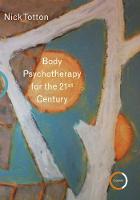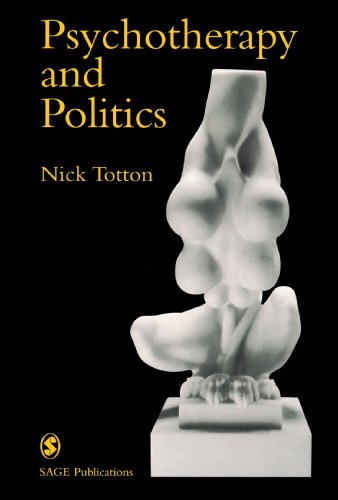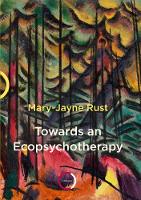Vital Signs: Psychological Responses to Ecological Crisis

Book Details
- Publisher : Routledge
- Published : 2012
- Cover : Paperback
- Pages : 336
- Category :
Psychoanalysis - Category 2 :
Individual Psychotherapy - Catalogue No : 32411
- ISBN 13 : 9781780490489
- ISBN 10 : 1780490488
There are currently no reviews
Be the first to review
‘"Vital signs" are, of course, the basic physiological measures of functioning which health practitioners use to assess the gravity of a patient’s predicament. This anthology focuses not so much on our physical predicament, with so many of the Earth’s systems severely stressed and beginning to fail – there are plenty of other places to read about this Instead we focus on our psychological predicament, as news of the situation slowly penetrates our defences and we struggle as individuals and as a society to find an adequate response. By “vital signs” we also mean signs that such a response is beginning to take shape: signs of hope, signs of healing.
We feel that ecopsychology in Britain has a distinctive voice and unique contributions to make. In doing so, we hope to facilitate debate and dialogue within the field, in the hope that this will lead eventually to more developed theory and practice. Things are still at quite an early stage in the construction of ecopsychology as a discipline, and the articulation of relationships of compatibility or incompatibility between various approaches. It will take time for the field to reach maturity, to agree on terminology (or agree to use different terminologies), and to develop organisational forms. This is a familiar process for any new way of looking at things.
At the same time as recognising this slow maturation, we are of course equally aware of the extraordinary urgency of the external situation which it is one of the missions of ecopsychologists to address. While there would in theory still be an important role for ecopsychology if we were not facing environmental meltdown - exploring the complex relationships between human and other-than-human, and the therapeutic value of bringing the two together - in practice ecopsychology has been completely shaped by a sense of catastrophic loss, of the irreversible destruction of complexity and the impending threat to the systems which sustain life on this planet.
From this point of view, ecopsychology is part of a much larger movement seeking to develop awareness of climate change together with all the other developing ecological crises (pollution, over-consumption of resources, destruction of habitats, etc). What distinguishes ecopsychology from many of the other players in this larger movement, however – apart from the psychological focus itself – is a very widespread perception of human beings as just one element in the global ecosystem; and an agreement, both ethical and practical, that humanity cannot save itself by throwing other species out of the sledge. The ecosystem stands or falls as a whole, human, other-than-human, and more-than-human; and a failure to recognise this is itself a symptom of our culture’s dissociation from its place in the larger whole, which is one of the causal factors leading to our current situation.
Among people who have been working in this area for some time, there is a growing question: what if we fail? What if our society does not manage a transition to a carbon-free economy – and all of the other transformations of culture and practice which are required alongside this? In all probability time is getting extremely short; considerable damage to global ecosystems is already certain, and runaway “tipping point” effects are predicted by many scientists.
Although awareness of this crisis is far greater than it was a decade ago, there is still little sign of a serious shift in public attitudes. Indeed in the UK, and elsewhere, ecological concerns have been eclipsed by the recent economic crisis with seemingly little recognition that of course ecological, social and economic crisis are completely interwoven. While the future can never be predicted with certainty, there is not much concrete basis for optimism. What then?’
- From the Introduction
About the Editor(s)
Mary-Jayne Rust is an art therapist and Jungian analyst. Alongside her private practice she writes, lectures and facilitates workshops in the field of ecopsychology. In the 1980s she worked at the Women's Therapy Centre with women with eating problems; this led to a wider interest in the roots of consumerism, the connections between body and psyche, land, and soul. Two journeys to Ladakh in the early 1990s alerted her to the seriousness of the environmental crisis, and gave her a brief glimpse of an almost intact traditional culture. On return she joined the PCSR ecopsychology group. This group of ten therapists met monthly for five years, discussing theory and exploring the practice of ecopsychology. She grew up beside the sea and is wild about swimming. Now she lives and works beside ancient woodland in North London.
More titles by Mary-Jayne Rust
Nick Totton is a therapist and trainer with nearly thirty years experience. Originally a Reichian body therapist, his approach has become broad based and open to the spontaneous and unexpected. Nick has an MA in Psychoanalytic Studies, and has worked with Process-Oriented Psychology and trained as a craniosacral therapist. He has authored or edited seventeen books, mostly on psychotherapy-related topics, including Body Psychotherapy: An Introduction; Psychotherapy and Politics; Press When Illuminated: New and Selected Poems; and Wild Therapy.
Customer Reviews
Our customers have not yet reviewed this title. Be the first add your own review for this title.










